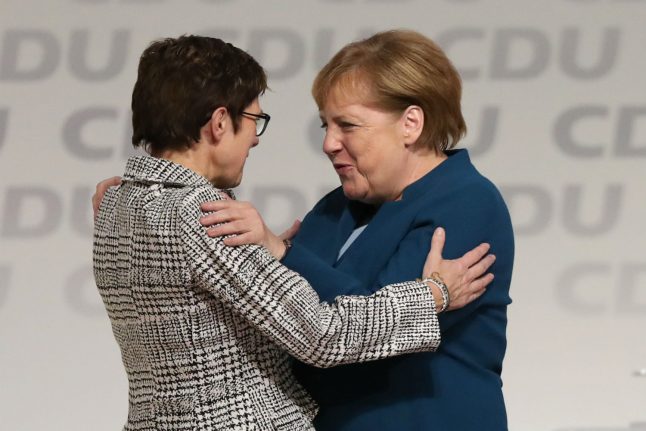At the CDU party conference in Hamburg on Friday, former Saarland Prime Minister won a run-off against former Union faction leader Friedrich Merz.
Kramp-Karrenbauer received 517 of the 999 valid votes cast, while Merz trailed only narrowly behind 482. A majority of 500 votes was required. Health Minister Jens Spahn stepped down after the first ballot.
Kramp-Karrenbauer (also known as AKK in the German media) projected the image of a centrist in the mould of Merkel, a traditionalist who was trying to hold the Volkspartei (people's party) together.
Merkel has moved the CDU steadily toward the political centre during her long tenure. More generous family leave, an exit from nuclear power and an end to military conscription are among her signature policies.
the resurgent Greens.
partners in Merkel's “grand coalition” – are mired in an even deeper crisis.
Herzlichen Glückwunsch, @_A_K_K_. Sie treten in große Fußstapfen. Viel Erfolg dabei. Jetzt heißt es Probleme lösen: Die Zukunft der Renten sichern, den Wert der Arbeit anerkennen, den Zusammenhalt in Europa stärken. Ich biete Ihnen gute Zusammenarbeit an.
— Andrea Nahles (@AndreaNahlesSPD) December 7, 2018




 Please whitelist us to continue reading.
Please whitelist us to continue reading.
Member comments